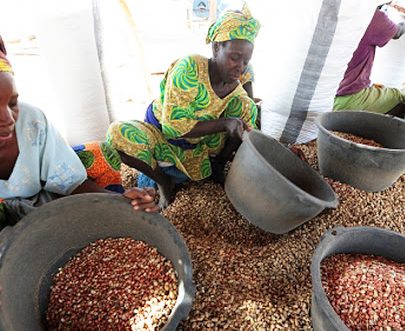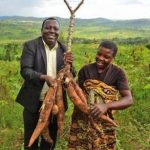
COVID-19 Impact on small-scale farmers: a case of Chipata, Mongu and Nalolo districts in Zambia.
It has been noted that small-scale farmers in these provinces are having a challenge in selling their fresh farm produce such as tomatoes, onion, milk, groundnuts, monkey nuts, bananas, vegetables and maize due to the restrictions in the movement of people as result of COVID -19 Pandemic. Moreover, the restrictions in their movements as a means to mitigate the spread of COVID – 19 has negatively affected them because their livelihoods depend largely on trading at various markets. The most notable and sad part of this, is that some of the farm produce which are ready for harvest are horticulture products like tomatoes and vegetables which are perishable in nature and are now going to waste.
Secondly, those who have been going to buy farm produce from the small-scale farmers are taking advantage of the situation by offering farmers low prices for their produce. This is very likely to lead to an increase in rural poverty levels as farmers will fail to meet their basic needs due to selling of their crops at very low prices.
Small scale farmers have been adversely affected by the restrictions on public gatherings and the need to comply with all other health guidelines and ultimately it has affected their household income. Eventually, they cannot afford to buy the essential items such as sanitizers, Chlorine and any protective gear needed to prevent COVID -19.
Most small-scale farmers do not have the capacity to hire vehicles to take their produce to the local market or sell to chain stores such as Shoprite, instead they have been working as a group by combining financial resources to hire a truck for transport to market but with the restrictions imposed in movements this is currently not happening. It is only the commercial farmers who seem to be benefiting during this period because they have financial resources to carry out business transactions.
Additionally, current issue of Markets being closed as of the case of JCS Food Market in Lusaka, without any warning or providing any alternative trading places or other means for source of income. As a measure of helping small scale farmers to remain productive during this period, the Chipata and Mongu District Farmers Association (DFA) have been engaging government officials through radio, requesting for the provision of a truck that can be used to help ferry farm produce from farmers to the markets and chain stores. They believe that this measure will help farmers cope with the restricted movement as well as still be able to market their produce through the Associations platforms in the two regions.





